News
Will Utah same-sex marriages be deemed invalid?
Advocates urge state to honor weddings already held
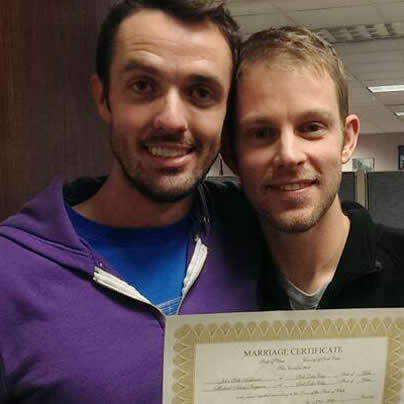

Michael Ferguson and Seth Anderson were among the gay couples that married in Utah before the stay was put in place. (File photo courtesy Seth Anderson)
The U.S. Supreme Court’s decision to halt same-sex marriages in Utah is raising questions about whether gay marriages already conducted in the state will be considered valid.
Doug NeJaime, a law professor at University of California, Irvine, predicted the issue may lead to its own litigation outside of the pending lawsuit, Kitchen v. Herbert, that enabled the same-sex marriages in the first place.
“I’m guessing that question will spawn its own litigation,” NeJaime said. “Clearly, Utah does not want to recognize those couples as married.”
On Monday, the Supreme Court issued a stay on same-sex marriages in Utah in the wake of U.S. District Judge Robert Shelby’s decision on Dec. 20 instituting marriage equality in the state. State officials — Utah Gov. Gary Herbert and Attorney General Sean Reyes — last week requested a stay from the high court on the basis that the marriages were an “affront” to the democratic process.
Now that the stay is in place, the attorney general’s office itself has expressed uncertainty about whether the marriages performed in the state will be considered valid. In a statement, Reyes cited a lack of precedent on the issue.
“This is the uncertainty that we were trying to avoid by asking the District court for a stay immediately after its decision,” Reyes said. “It is very unfortunate that so many Utah citizens have been put into this legal limbo. Utah’s Office of Attorney General is carefully evaluating the legal status of the marriages that were performed since the District Court’s decision and will not rush to a decision that impacts Utah citizens so personally.”
Although Reyes maintains he won’t rush into a decision, pressure will be on the state to decide soon. Now that 2014 has begun, gay couples that recently married in Utah will be filing their taxes and will need to know whether they qualify as married or single.
One common prediction is the marriages will be deemed invalid similar to how the California Supreme Court invalidated the marriages then-San Francisco Mayor Gavin Newsom allowed with the state’s ban on same-sex marriage in place. But the situations are different. The marriages at that time were happening as a result of executive action, not a court order.
The American Civil Liberties Union, which was responsible for the lawsuit bringing down Section 3 of the Defense of Marriage Act, took to Twitter to encourage Utah to uphold the marriages as valid.
Though future marriages for gay couples are on hold in UT the state should consider those marriages that have already taken place as valid
— ACLU National (@ACLU) January 6, 2014
A possible scenario is that Utah itself won’t recognize the same-sex marriages performed in the state, but the federal government would deem those unions valid for federal benefits. Under that scenario, these couples would be considered married for tax purposes as well as for health and pension benefits if either person in the marriage works for the U.S. military or federal government.
A White House spokesperson deferred to the Justice Department on whether the federal government would recognize these marriages as valid. Dena Iverson, a Justice Department spokesperson, said, “We are reviewing the court’s decision.”
Shannon Minter, legal director for the National Center for Lesbian Rights, said it’s possible Utah may not recognize same-sex marriages pending appeal of the case, but maintained the federal government should accept the unions as legitimate.
“The federal government should recognize them for most purposes because federal recognition for almost all federal benefits hinges only on whether a marriage was valid when entered,” Minter said.
The final number of same-sex marriages performed in Utah before the Supreme Court put in place its stay isn’t yet known. According to a Dec. 27 report in the Associated Press, Utah issued 900 marriage licenses to gay couples in the week after a federal judge struck down the state’s ban on same-sex marriage.
Suzanne Goldberg, co-director for Columbia University’s Center for Gender & Sexuality Law, insisted that these marriages should be considered valid even with the stay in place.
“It is unlikely that the marriages already performed in Utah will be invalidated,” Goldberg said. “Those marriages were performed in accordance with Utah law and a later change in the law, if there is one, should not undo them.”
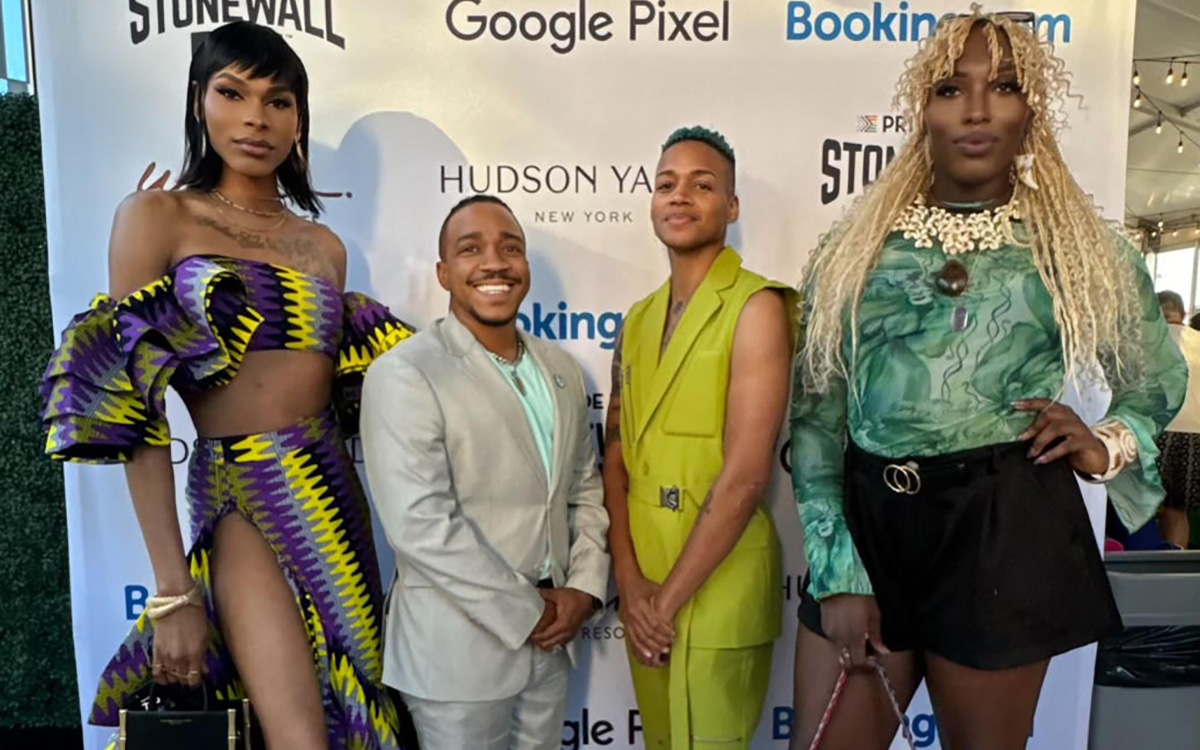
It is common knowledge that women earn 84% of the average worker. Less common knowledge? Trans women earn 60% of the average worker. Trans men and non-binary people come in at around 70%, while 16% of all trans people make less than $10,000 annually.
E.C. Pizarro was lucky, and he knew it. He had a BFA in graphic design and had taught himself how to code. As a stealth trans man in a corporate job, he had access to a stable wage and good benefits. “People that do not have experiences in corporate America or with equitable employment don’t realize [these things] are privileges that a lot of people don’t have access to.”
He wanted to give back and was gearing up to bring more volunteer work into his life by participating in a fraternity for trans men. When he went to a TransTech event and learned about the educational and career resources for trans people who face barriers to entering the workforce, he knew he had found his place.
At the event he met, Angelica Ross. Yes, that Angelica Ross, of “Pose” and “American Horror Story.”
Before she was Candy, Ross was a self-taught coder. She went from posing for an adult website to doing its back-end coding to teaching her trans siblings how to succeed in tech.
“Technology was the key to my freedom,” Ross said in an interview with The Plug. “Technology took me from being exploited on someone’s website to building my own websites and to building websites for other people and getting paid to do so.”
Pizarro was impressed and wanted to help. “I went up to Angelica and I was like ‘Hey, I’m a trans man. These are my skills. I’m down to volunteer and do any type of work—the one caveat is that I’m stealth. You can’t tell anybody that I’m trans.’”
For four years, Pizarro helped from mostly behind the scenes, sometimes getting side-eyed since people thought he was a cis man in trans spaces. “I was still stealth as the Director of Social Media and Communications for the National Trans Visibility March in 2019,” Pizarro says, chuckling a little.
But by that point, Ross — who headlined the 2019 march — was overextended trying to balance being a world-famous actress, advocate, and businesswoman.
She needed someone to step in as executive director of TransTech and looked to the group of dedicated volunteers. Pizarro was elected by his peers to take the reins of the organization.
This was a turning point for Pizarro. “I’m very passionate about tech and for me a small sacrifice of being open with my trans experience to liberate other trans people,” he said. “I felt like if that’s something I got to do, then I’m gonna do it.”
And he did it. The infrastructure Ross put together worked: with mentorship, education, community, and networking with trans-accepting employers, trans people were gaining financial security and independence.
So, Pizarro focused on expanding TransTech as widely as possible. “We have grown exponentially over the last three years,” he says. “When I took over in 2021, we had about 800 members based in the United States. Now we support over 6,700 members across 50 countries.”
TransTech is filling a demonstrated need within specifically the trans community. New research from LGBT Tech found that 68% of transgender adults use the internet to find LGBTQ-friendly employment (compared to 38% of cisgender LGBTQ+ adults). More than 70% of all LGBTQ adults use the Internet to access educational content.
Accessibility is central to the TransTech programming. Despite the growth, everything remains free. “There’s no membership fee. All of our programming is free. All of the certifications and educational resources are free,” Pizarro says.
They know the financial burden the trans community faces — 29% of trans adults live in poverty. “If we’re asking anyone to up-skill [for a cost] and these are the things they are going through, we are asking them to invest in their future versus their meal today.”
Pizarro believes that accessibility is more than just making the training free. He wants the community to understand that tech work is something they are innately capable of doing.
“TransTech was built on the foundation of nontraditional tech. It’s not always coding. It’s graphic design. It’s social media. It’s video editing. It’s anything that uses a piece of technology and nowadays almost everything uses a piece of technology,” says Pizarro.
He emphasizes to participants: “You’re in tech and you don’t even know it,” pointing out how many already utilize tech skills like marketing and monetization with their social media accounts.
Some people involved in the programming are nervous about entering the “tech world” because of headlines about tech layoffs. He makes sure to emphasize that unlike in some other jobs, tech companies often pay generous severance packages, which gives employees “breathing room.” Pizzaro explains that “once you have experience with one tech company, you can go someplace else and make a substantial amount of money as well.”
While TransTech is designed for the gender-diverse community, the programming is open to everyone Pizarro explains. “We just ask that you don’t be transphobic.” (Or any of the other -phobics too, he says, listing them off.) He also emphasizes that this allows trans members who are not out to comfortably participate.
Pizarro wants everyone to understand that they don’t just belong in tech, but they make tech better. “Tech is most profitable when you have diverse people building the tech and using the tech,” Pizarro says. “There is an intentional funding as well as support to diversity tech because they understand how that impacts the product.”
He also reminds participants that they have developed transferrable skills in every part of their lives. “I like to tell people if you can manage your life as a trans person in the United States or anywhere you can manage a project.”
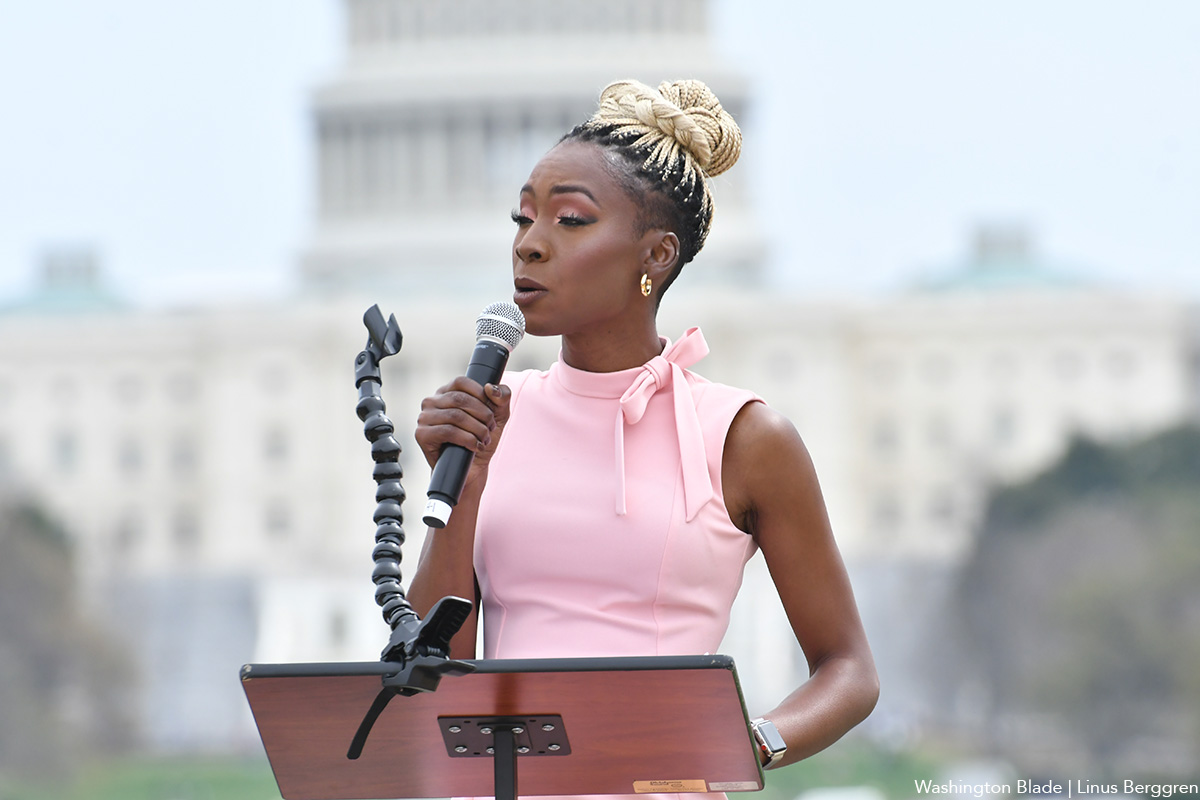
District of Columbia
Fire by arson forced temporary shutdown of Glorious Health Club
Spa and art gallery catering to gay
men expects to reopen in August
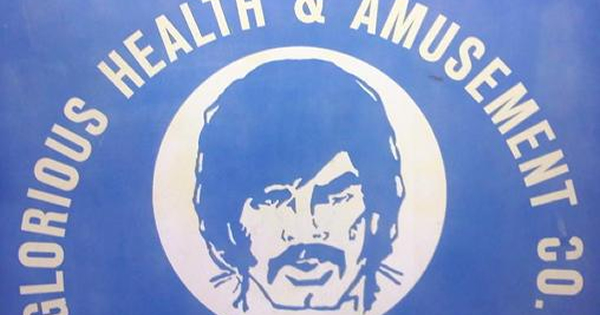
In a little noticed development, D.C.’s Glorious Health Club, which bills itself as a spa, art gallery, and community center catering to gay men, was forced to close on May 19 after one or more unidentified suspects ignited a fire inside the club that D.C. fire department officials have ruled an act of arson.
Robert Siegel, the club’s owner, told the Washington Blade that he and investigators with the D.C. Fire and Emergency Medical Services Department believe one or more yet unidentified suspects broke into the kitchen of the former warehouse building where the club is located at 2120 West Virginia Ave., N.E.
According to Siegel, investigators with the fire department’s arson squad believe a flammable liquid was used to start the fire in the kitchen and in two other locations within the building.
“Three separate fires were started,” Siegel said. “They started one on a staircase and one on the upstairs storage area,” he said in addition to the one in the kitchen. He said about 40 patrons were in the club at the time the fire started, and all were able to leave without injury.
Siegel said the fire caused $500,000 worth of damage to his building, with some of the damage caused — understandably he said — by fire fighters who had to rip open doors and break through the roof to gain access to the flames that engulfed parts of the interior of the building. He said he arranged for repair work to begin after the fire was extinguished.
“I expect we’ll be reopening in about a month from now,” he said. “And we’ll be a bigger and better place.”
Fortunately, Siegel said, most of the artwork and art exhibits located in the club were not damaged.
“It was basically the kitchen, patio, and the roof,” he said, adding that much of the solar panels he had on the roof were destroyed by the fire or by firefighters seeking to gain access to the building.
“And the fire was so hot it did structural damage to the roof,” he said. “It actually melted steel. We’re talking about 50-foot steel beams that have to be replaced,” he told the Blade. “That’s $100,000 right there.”
Vito Maggiolo, a spokesperson for the D.C. Fire and Emergency Medical Services Department, said the fire was “ruled incendiary/arson” and is “under active investigation.”
It could not immediately be determined if one or more people responsible for the fire targeted the Glorious Health Club because it’s a gay community establishment.
South America
Chilean capital Pride parade participants, activists attacked
Men wearing hoodies disrupted June 29 event in Santiago

A group of hooded men on June 29 attacked LGBTQ activists and others who participated in the Chilean capital’s annual Pride parade.
Witnesses said the men punched and kicked activists and parade participants, threatened them with a skateboard, threw stones and paint at floats and damaged parade infrastructure. The men also broke a truck’s headlight.
The Movement for Homosexual Integration and Liberation, a Chilean LGBTQ rights group known by the acronym Movilh, strongly condemned the acts of violence, calling them deliberate attempts to disrupt a peaceful and safe demonstration.
“Vandalism that seeks to transgress the peaceful trajectory of our demonstrations and that is only useful to the interests of the homo/transphobic sectors,” denounced Movilh.
The attack occurred when the hooded men tried to break through the security fence protecting the participants and the truck that was at the beginning of the parade.
“As we do every year, we fence the truck with our volunteers to prevent anyone from being run over or hurt by the wheels,” said Movilh. “The hooded men approached the fence to break it, hitting our volunteers and people outside of our organization with their feet and fists who, in an act of solidarity, tried to dissuade them.”
The motives behind this attack seem to be related to previous calls on social networks to boycott the event, although the organizers stressed that violent acts are alien to the parade’s inclusive and celebratory purpose.
Movilh spokesperson Javiera Zúñiga told the Washington Blade that “after the attack that we faced during the Pride March, we published in our social networks the few images that were available from that moment.”
“What we are basically asking is that anyone who has seen something and can recognize any of the aggressors write to our email or (contact us) through our social networks so that we can file complaints and do whatever is necessary to find those responsible.”
Zúñiga stated that “not only was there aggression against people, but there was also damage to private property because they broke one of the truck’s headlights.”
“So for these two reasons we are looking for anyone who may have information to contact us,” she said.
The incident has generated widespread condemnation within the LGBTQ community and outside of it. They say it highlights the need to protect human rights and diversity and promote respect for them.
-

 Canada3 days ago
Canada3 days agoToronto Pride parade cancelled after pro-Palestinian protesters disrupt it
-

 Politics2 days ago
Politics2 days agoHRC slams White House over position opposing gender affirming surgeries for minors
-

 U.S. Supreme Court2 days ago
U.S. Supreme Court2 days agoConcern over marriage equality in US grows two decades after first Mass. same-sex weddings
-
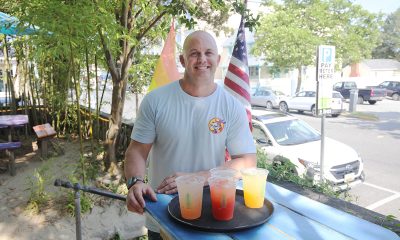
 a&e features1 day ago
a&e features1 day agoRehoboth’s Purple Parrot still soaring after 25 years








